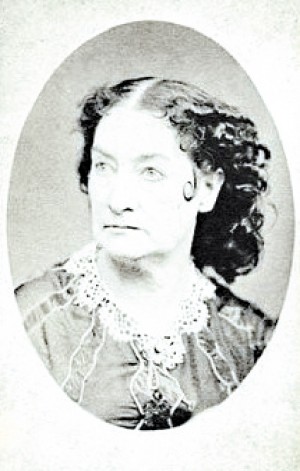A driving snow storm and chilling temperatures dipping to 20 degrees below zero ushered in the New Year. The sentries at Camp Morton watching over the 3,000 prisoners quartered in barracks furnished with stoves and wood, along with several soldiers at Camp Carrington, Camp Shanks, and Camp Fremont “suffered terribly” from frosted ears, noses, and feet. Drifted snow, frozen pipes, and frosty rails put trains coming into Indianapolis on all railways behind schedule as they made their way to the depot with the “greatest difficulty.” However, for most of the month following the storm, city streets rang with “continual gaiety” day and night with the sounds of jingling of bells as fast horses drew their sleighs until the thaw. Reflecting on the one year anniversary since the Proclamation of Freedom was issued, the Journal noted, “Seldom has the wisdom of any measure been so completely justified by subsequent events….[It] is now acknowledged by friend and foe to have been the most effective measure for the suppression of the rebellion…it is a step of right and justice.”
The State Teachers’ Association concluded its annual convention at the State House so schools could once again welcome the “little folks [who] will be about over their sweetmeat sickness” and ready to resume their studies. Scarlet fever and diphtheria have made their appearance among the city’s children. The Indiana Pomological Society held its third annual meeting in the Senate Chamber of the State Capitol with a “fine display” of fruits and wines. At the Metropolitan Hall, Emma Waller, “the best tragedienne in the country,” began her stage appearance in the city as Lady Macbeth, and among her later roles she performed as Iago in Othello, while over at Masonic Hall Newcomb’s Minstrels performed for “three nights only.” At the beginning of the last week of the month, General Tom Thumb and his wife, Lavinia Warren, along with Commodore Nutt made five appearances at Masonic Hall.
Gov. Morton ordered public receptions at Masonic Hall for regiments returning on thirty-day furloughs following re-enlisting — “the re-enlistment of veterans in the field has far exceeded the most sanguine expectations of the Government” — while Mayor John Caven organized meals at the Soldiers’ Home, prepared by the ladies of the city, to be served to Indiana’s “war-worn veterans” upon their arrival. The firing of cannon and the ringing of the “great alarm bell,” followed by the ringing of bells throughout the city, signaled the arrival of troops at the Depot and the men marched “with their guns, and their old battle flag in tatters,” along city streets lined with cheering citizens waving handkerchiefs and flags, buildings decorated with flags and national emblems, and beneath triumphal arches on their way to the Soldiers’ Home for “turkies and jellies,” and later in the day to Masonic Hall (or Metropolitan Hall) to hear speeches. Throughout the month, celebratory crowds greeted returning soldiers of the 9th, 13th, 17th, 19th, 24th, 29th, 31st, 35th (Irish), 42nd, and 44th Regiments, and amid “enthusiastic cheers,” the governor cordially welcomed them and recounted their honored role in battles. Nearly four thousand soldiers from other states found food and lodging at the Soldiers’ Home as they paused in the city on their way to various destinations. A new military prison, affording “room for sixty men,” was completed at Camp Morton to confine soldiers awaiting Court Martial or those serving sentences.
The “imposing” funeral procession led by the National Guards band and the Masonic fraternity followed by carriages with members of the bar, the governor, state officers, friends and neighbors conducted the funeral hearse, drawn by four black horses, carrying the remains of Judge Caleb B. Smith of the United States District of Indiana, who had died suddenly, through the city streets to the City Cemetery. Prior to accepting the judgeship a little over a year ago, Judge Smith was President Lincoln’s choice for Secretary of the Interior, “the first Indian who ever held a Cabinet office.”
The city churches reported “a steady growth and increasing interest” at the conclusion of protracted meetings and extensive revivals over the last several weeks. Roberts Chapel had one hundred accessions and at the Soldiers’ Home, “quite a number of soldiers have recently united with the churches.” Initial steps were taken to organize a merchants’ exchange — the Indianapolis Chamber of Commerce — in the city when “a large number of merchants and businessmen” met in the office of Daniel Carlisle. The growth of business in Indianapolis, particularly in grain, flour, pork and groceries, was cited by Dr. Thomas B. Elliott as “the importance and value of such an organization.” Committees were appointed and a subsequent meeting scheduled.
If you would like a collection of these “Civil War – 150th Anniversary” the Bona Thompson Memorial Center, 5350 E. University (Irvington) has the last 3 years in 3 booklets – $10 per set. They are open Wed. 1-3pm, Sat. & Sun.1-4pm. All proceeds benefit the Irvington Historical Society.



